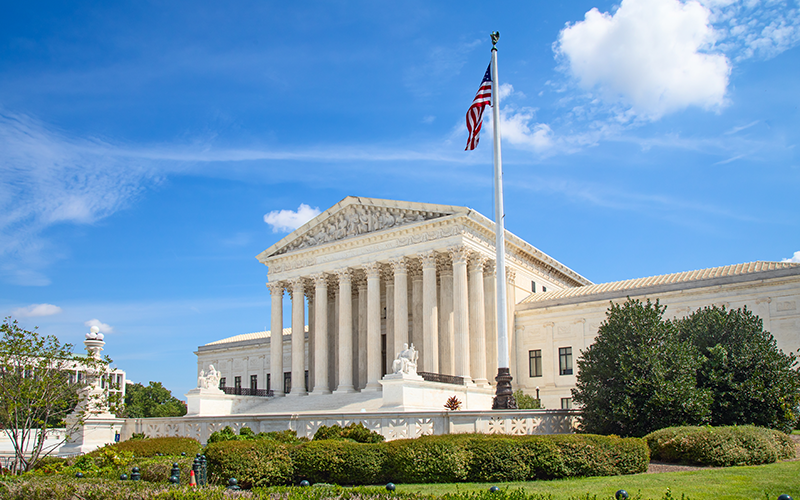Continuing to charge full steam ahead in an unwavering effort to defend public workers’ rights, the Freedom Foundation recently filed yet another U.S. Supreme Court petition, Bourque v. Engineers and Architects Association (EAA), presenting the justices with a perfect opportunity to reinforce the landmark decision in Janus v. AFSCME.
Just six years ago, Mark Janus, an Illinois state government employee, was forced to pay union “agency fees” to the American Federation of State, County and Municipal Employees (AFSCME) as a condition of employment, even though he wasn’t a member and opposed many of the union’s public policy positions.
Consequently, the Janus Court established that forcing non-consenting public employees to pay unions money, which is then used to fund political activity the workers may oppose, is compelled speech in clear violation of the Constitution.
In reaching this decision, the Court restored fundamental First Amendment free speech rights for millions of public-sector workers across the country.
Nonetheless, government unions continue to exploit public-sector workers, undermining their First Amendment rights while ignoring the majority’s unequivocal ruling in Janus.
The Freedom Foundation has already filed several Supreme Court petitions spotlighting similar issues of unions using state authority to compel public employee speech through the deduction of full union dues without affirmative consent.
And although the unions waived their right to respond to the Freedom Foundation’s arguments, the Court has taken an extraordinary step in ordering them to respond.
Now, in a nearly identical case to Janus, Bourque v. EAA presents the cleanest, simplest set of facts alleging compelled union speech in the post-Janus world — a non-member public employee never authorized deductions from her wages and yet, the government union continued to seize her money and compel her speech anyways.
Like Mark Janus, Camille Bourque, an employee of the city of Los Angeles, never joined EAA and never authorized the union to deduct money from her wages.
In fact, Bourque never signed or authorized anything.
Even after Janus required that an employee clearly consent to what otherwise violates their constitutional right to avoid subsidizing objectionable speech, EAA continued to instruct the city of Los Angeles to take full dues from Bourque’s paycheck.
After receiving an offensive political solicitation from EAA, Bourque discovered her employer had been confiscating her hard-earned money for years without consent.
Bourque immediately sent an opt-out letter to the union, asserting her right to cease the unlawful deductions. But the union refused, ignored Janus and continued to demand the government take full dues from her pay.
Bourque v. EAA presents an unparalleled opportunity for the Court to revisit its landmark Janus decision and issue another unequivocal message to government unions, public agencies, and lower courts that trampling on the First Amendment rights of public employees is unacceptable.
The U.S. Supreme Court should seize this opportunity to defend its Janus ruling, curb union abuse of power and reinforce the First Amendment rights of public-sector workers across the country.









